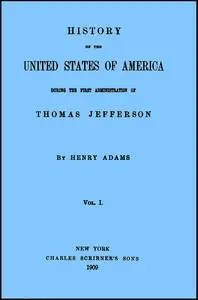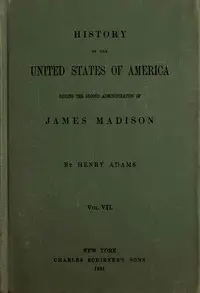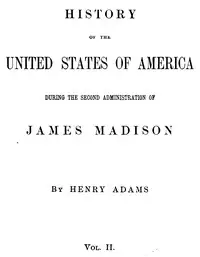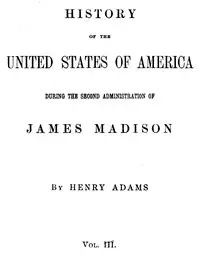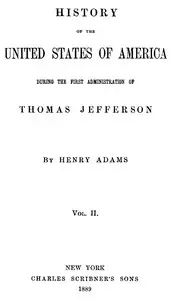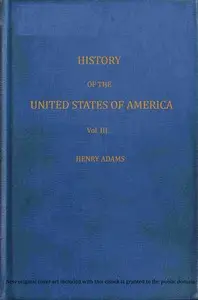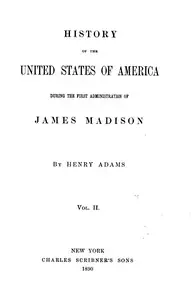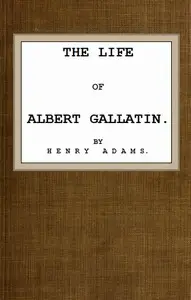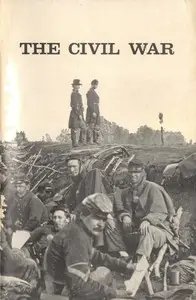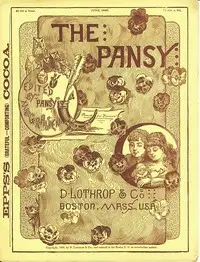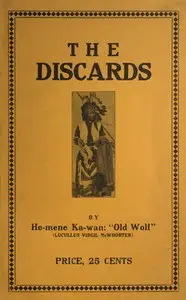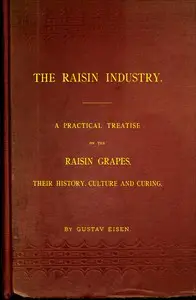"History of the United States of America, Volume 5: During the First Administration of James Madison" by Henry Adams is a historical exploration of James Madison's initial years as president, from 1809 to 1813. It's a book that aims to capture the atmosphere of American political history and the difficulties of leading a country during Madison's time. It begins by looking at Madison's inauguration and the problems he has early on, like keeping the peace while dealing with England and France, it shines a light on problems inside Madison's group of advisors and political fighting that threatened his leadership right from the start. The writing helps understand the disagreements and political moves that marked Madison's first four years, covering topics like trade, relationships with other countries, and the tricky balance of power in American politics.
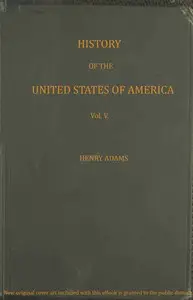
History of the United States of America, Volume 5 (of 9) : $b During the first administration of James Madison
By Henry Adams
Witness the birth of a nation as a new president grapples with war, political infighting, and the delicate dance of international relations during a tumultuous era of American history.
Summary
About the AuthorHenry Brooks Adams was an American historian and a member of the Adams political family, descended from two U.S. presidents. As a young Harvard graduate, he served as secretary to his father, Charles Francis Adams, Abraham Lincoln's ambassador to the United Kingdom. The posting influenced the younger man through the experience of wartime diplomacy, and absorption in English culture, especially the works of John Stuart Mill. After the American Civil War, he became a political journalist who entertained America's foremost intellectuals at his homes in Washington and Boston.
Henry Brooks Adams was an American historian and a member of the Adams political family, descended from two U.S. presidents. As a young Harvard graduate, he served as secretary to his father, Charles Francis Adams, Abraham Lincoln's ambassador to the United Kingdom. The posting influenced the younger man through the experience of wartime diplomacy, and absorption in English culture, especially the works of John Stuart Mill. After the American Civil War, he became a political journalist who entertained America's foremost intellectuals at his homes in Washington and Boston.

